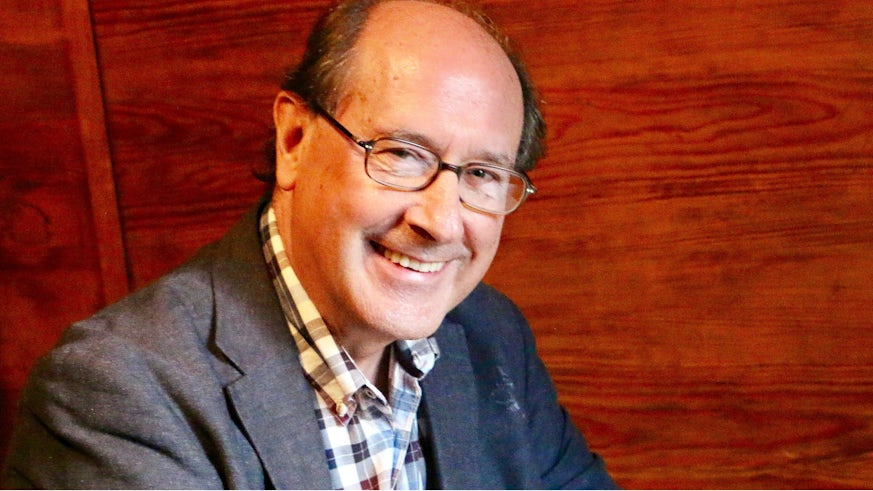US award for Cardiff physicist
25 October 2019

Professor Bernard Schutz has been given a prestigious award by the American Physical Society for his “pioneering and decisive” work in the detection of gravitational-wave signals.
Professor Schutz, from the University’s School of Physics and Astronomy, has received the Richard A. Isaacson Award in Gravitational-Wave Science alongside Bruce Allen from the Max Planck Institute for Gravitational Physics.
The award, which comes with a $5,000 prize, recognises outstanding contributions in gravitational-wave physics, gravitational-wave astrophysics, and the technologies that enable these endeavours.
“I am delighted that the American Physical Society recognises our long-term contributions to gravitational-wave data analysis,” said Professor Schutz, who was the first Director of Cardiff University’s Data Innovation Research Institute.

Astronomy with gravitational waves needs both sensitive instruments and equally sensitive and efficient data analysis methods. In a sense, data analysis is the other half of the detection systems that produce the scientific results. Its development has gone hand-in-hand with that of the hardware since the 1980s.
Professor Schutz has developed important principles for the observation of the Universe with gravitational waves and plays a leading role in the development of both earth-based and space-based gravitational-wave observatories.
His work on gravitational-wave data analysis began in the 1980s where he performed the first coincidence analysis of data taken from two prototype interferometers in 1990, demonstrating early versions of the methods that are still used today.
He also pioneered the use of supercomputers to solve Einstein’s field equations and study black holes.
His work showing how to measure distances to gravitational-wave sources and using this to measure the Hubble constant was honoured with the Royal Astronomical Society’s 2019 Eddington Medal and by his election in 2019 to the US National Academy of Sciences.
After 21 years at Cardiff University, he became one of the founding directors of the Max Planck Institute for Gravitational Physics (Albert Einstein Institute; AEI) in Potsdam in 1994 and played a major role in building up the institute until his retirement and return to Cardiff in 2014.
Professor Schutz is a prominent member of Cardiff University’s Gravity Exploration Institute, who form part of the LIGO Scientific Collaboration and have made key contributions to the detection of gravitational waves.



